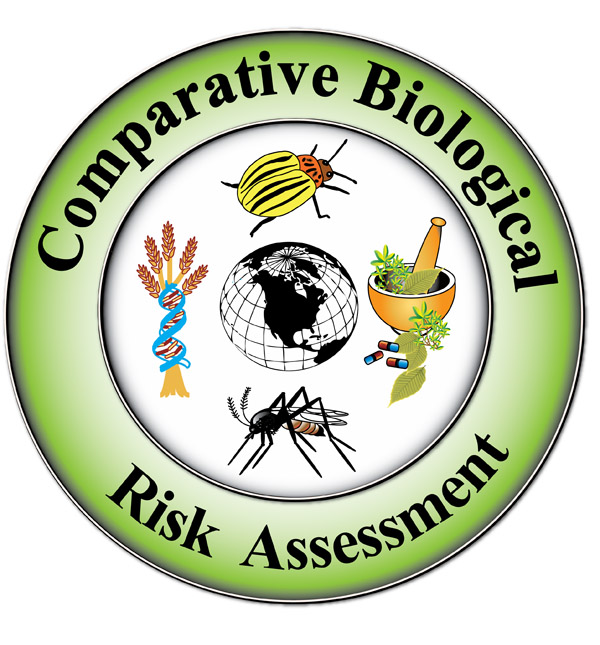Current Research
My research program at MSU primarily is focused on agricultural and biological risk assessment. More specifically, the program is centered on comparative risk assessment. Additional areas of research emphasis include plant-stress ecophysiology and integrated pest management. All three areas form a diverse, yet interrelated research program.
Risk Assessment Research
My research program can best be described as encompassing various aspects of comparative risk assessment. The purpose of comparative risk assessment is to qualitatively and quantitatively compare different environmental risks for the purpose of improved decision-making. Within this umbrella, we are developing innovative approaches to risk assessment.
The specific research projects can be grouped under biotechnology risk, invasive species risk, and pesticide risk. Biotechnology risk research focuses mainly on agricultural plants and includes glyphosate-tolerant crops, Bt crops, and plant-based biopharmaceuticals. Within these biotechnology areas, we are developing and evaluating approaches to optimize human health and ecological risk assessments. Invasive species research includes human health risks associated with vector-borne diseases (e.g., West Nile Virus) and human and ecological risks associated with introduced weed species. The pesticide risk research is mainly tied to comparative assessments of biotechnology or invasive species issues. For example, human health risks from West Nile Virus are compared to risks from the use of insecticides to control mosquito vectors of the virus.
An additional risk topic includes research on the relationships between pest damage and food toxicology and nutrition. Specifically, we are using insect herbivores to injure plants or stored grain, measure subsequently induced phytotoxins, antinutrients and mycotoxins, and then relate those products to human dietary risk.
Plant-Stress Ecophysiology Research
The primary project in this category involves wheat physiological responses to the wheat stem sawfly. Other activities include developing models of plant physiological response to different arthropod injury guilds and characterizing invasive weed physiological responses to injury by biological control insects. The latter project has important consequences for determining the impact of biological control on weeds and therefore for assessing the risks and benefits of biocontrol programs.
Integrated Pest Management Research
This research primarily focuses on IPM theory, specifically economic decision levels.

